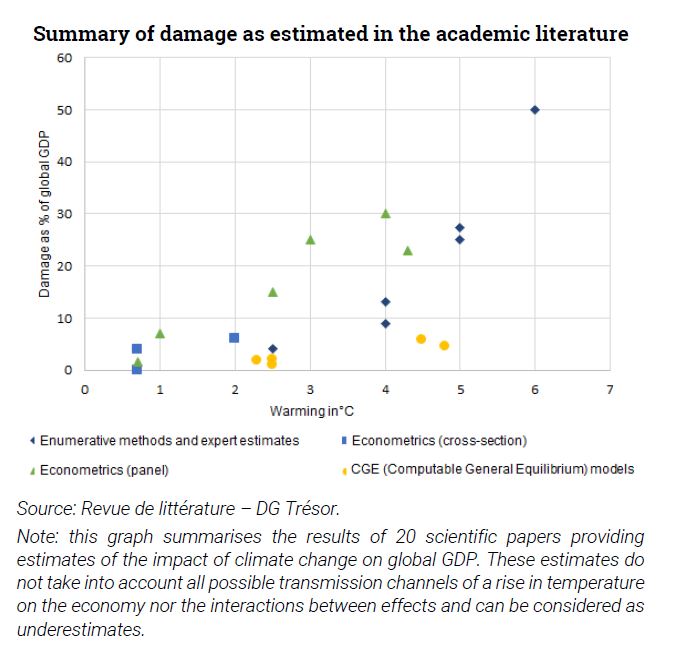The economic effects of climate change
Without proactive efforts, climate change caused by greenhouse gas emissions could alter the framework of human life in unprecedented ways. The economic effects of climate inaction are difficult to predict precisely, but the scientific consensus is that there will be a strong negative impact, with a risk of unanticipated aggravating effects and strong inequalities by region and sector. The cost of reducing emissions would be lower than the cost of damage.
Scientific consensus, including that of the Intergovernmental Panel on Climate Change (IPCC), has identified man-made greenhouse gas emissions as the cause of climate change. Without a determined effort to reduce these emissions, the living environment could be significantly altered during the 21st century. The cost of climate inaction can be estimated by assessing the economic and social effects of these changes.
There are both theoretical and practical difficulties in assessing these effects: historical data linking economic activity and climate conditions is scarce and of inconsistent quality, while the large panel of potential economic and social impacts as well as the feedback loops between them make precise quantification uncertain. However, the available scientific evidence posits that climate change is likely to have a significant negative effect on global GDP. Uncertainty about the magnitude of this effect can be seen as another risk factor. Everything we know about climate change suggests that many of its effects remain unknown.
The available studies at regional level also reveal substantial inequalities: countries closest to the equator may not only experience greater global warming, but may also be hardest-hit by its indirect effects (on health and on social and political stability) notably due to the weakness of their institutions and the predominance of agriculture, the most impacted sector. However, given the multiple transmission channels (epidemics, financial stability, trade, migration), no country stands to gain from climate change.
Whether calculated using a cost-benefit analysis (by comparing the economic impacts of warming to the cost of reducing emissions) or from an insurance perspective (by considering warming as a risk), these studies argue for proactive public policies in favour of reducing emissions, which must be coordinated at European and global level.
